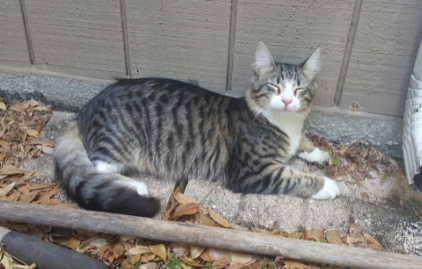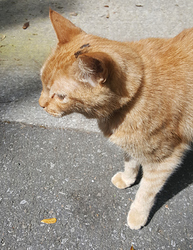韓国が2回行ったのに韓国語を聞きにくいから挨拶まだ覚えていない…
それは怖いな〜
だけど本当に綺麗で面白い国だから楽しみにしてるぞ。北朝鮮の国境にも行くかな。
グーグル地図で泊まる場所を見たんだけど周りの看板はよく日本語で書いてある。日本人だらけの場所かも笑笑
Hello! This is my first post on BunPro, yay
My 3 sentences for today:
- 付きに会っていると聞いた。
- 毎日に野菜を食べるようにしている。
- ボートの上に何が書いてあるの?
Translations
- I heard they’re dating.
- I’m trying to eat vegetables every day.
- What’s written on the board?
Comments
I wasn’t sure whether 3. needed the を or が particle.
Welcome!
I always want to add a disclaimer that I make mistakes in my accuracy all the time, but all of them look perfectly understandable. Here’s some slight changes I would make:
Just lose the に
毎日野菜を食べるようにしている。
If you’re talking about the blackboard or whiteboard, I would use 黒板 or ホワイトボード.
Simply saying ボード makes me imagine some kind of wooden board.
Also, I would lose the ‘の上’ because it gives the impression of ‘on top,’ so I would simply say ‘黒板に何が書いてあるの?’
You’re right to use が. を would imply someone performing the action.
何が書いてあるの?
山田先生は何を書いているの?
If I’ve made any mistakes in that correction someone let me know!
私は食べすぎませんでした。
サラさんは食べなさすぎた。
(I intentionally used different levels of formality/politeness.)
Translation
I did not eat too much.
Sara ate very little. / Sara did not eat very much.
Comments
I wanted to practice the negative of すぎる because I haven’t met enough examples of it. I still feel like I need to practice it though, because I had too look up how to do the negative verb version, plus what the difference was between negative verb and negative すぎる.
週末に母が泊まって来たら早く家事したりしなくちゃ
Summary
Since my mum is coming to visit at the weekend, I have to hurry up and tidy the house etc.
Perfect understanding. 
今晩俺の仕事の宴会が行われる!ホテルで行われるのでスーツを着なきゃいけないけど俺が知らなかった。昨日友達と焼き肉を食べに行って、宴会の話を語って友達はホテルならスーツを着なきゃね?って。知らなかったからその友達のおかげで今晩の宴会は恥ずかしくならない笑
私はとても強調していますでも、大丈夫でしょう。
Summary
I am very stressed, but I will be okay.
強調(きょうちょう) means to emphasise.
Stress is 緊張(きんちょう)
でも doesn’t come after ます. It should be something like が (more appropriate in this sentence since it is polite) or けど, けれど, けれども, etc.
Your sentence should probably read something like this:
私はとても緊張していますが、大丈夫でしょう。
Or if you wanted to be more casual:
私はとても緊張しているけど大丈夫でしょ。
Hope this helps!
今晩は仕事の宴会がある!ホテルで行われるから本当はスーツを着なきゃいけなかったんだけど、俺は知らなかった。昨日友達と焼肉を食べに行ったとき宴会の話をしたら、友達はホテルならスーツを着なきゃね?って。そんなこと知らなかったから、その友達のおかげで今晩の宴会は恥をかかないですんだw

By “cheating” and looking it all up. Of course, that haven’t stopped me from making mistakes in the past! 
早く寝た方がいいですね。
Summary
It would be better to go to bed/sleep early, right?
And because last time I looked stuff up. I am not going to before posting this… I peeked, but couldn’t check one thing… Practicing both “it would be better to” and seeing if I have any idea of how to add “early” to “going to sleep”.
I had a hard time particularly with the word “stressed,” I looked it up on jisho but I must of misunderstood something. Thanks for your help! 
Past tense so プールに行った前に, otherwise ok.
The word ストレス is sometimes used but I would say that in 95% of daily conversation, it’s 緊張. It’s a very common word in daily conversation because it covers things like stressed, nervous, etc.
Ahh I see, thank you for helping me correct it 
今日は訪問者を持っています。

In Japanese we say it this way:
今日は来客がある。
今日は訪問者があります。
今日はお客さんが来る予定です。
あさって韓国に行ってくるぞ!楽しみにしているけど韓国語を全然話せないから英語か日本語を話せる人を探そうと思っている。

